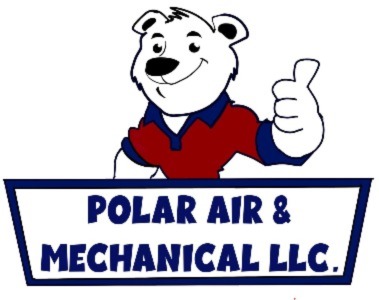
If you’re uncertain whether your Myrtle Beach home has poor indoor air quality (IAQ), it probably does.
We are indoors a lot. In fact, we’re inside up to 90% of the time, according to the U.S. Environmental Protection Agency. And the air inside residences could be 2–5 times more contaminated than outdoors, which can create long-term health concerns.
Most Common Origins of Unsatisfactory IAQ
We’ve compiled a list of the most common sources of bad IAQ, the troubles they create and how you can remedy these indoor air pollutants. If you’re worried about the air inside your house, we recommend consulting with a specialist like Polar Air & Mechanical about which options are best for your home.
Volatile Organic Compounds
Volatile organic compounds, or VOCs, are chemicals released by regular household products.
They’re found in paint and stains as well as:
- Furniture
- Carpet
- Building materials
- Cleaning products
- Cosmetics
- Air fresheners
- Candles
When these chemicals accumulate inside, they may irritate your eyes, nose and throat. They may also result in headaches and nausea. Regardless of whether your residence is in a rural or industrial space, an EPA study found indoor levels of these pollutants can be 2–5 times higher than the air outside your home.
Always use the manufacturer’s instructions when using paint or cleaning supplies. Cracking a window can help odors dissipate faster.
Air purification systems can also make it better. This system partners with your heating and cooling unit to enhance indoor air. When seeking a system, ensure it’s specifically made to wipe out VOCs.
Dust and Pet Dander
Dust and pet dander can irritate health problems like asthma and allergies, especially when it constantly gets redistributed by your residence’s comfort equipment. While you can vacuum more frequently and install an improved air filter, an air filtration system might be a better fit.
This unit hooks to your HVAC equipment to provide powerful filtration. Some kinds offer hospital-level filtration for removing particles and bioaerosols.
Lingering Odors
Modern houses are securely sealed to boost energy efficiency. While this is good for your energy expenses, it’s not so good for your IAQ.
Stuffy odors can stick around for a greater amount of time since your house is pulling in reduced fresh air. Because keeping your windows open all year-round isn’t doable, here are two approaches you can make your indoor air smell cleaner.
An air purification system is installed in your ductwork to wipe out odors before they are redistributed. Search for one with a carbon filter and the capability to wipe out harmful VOCs. This equipment can also help keep your household healthy by getting rid of most bacteria and ordinary allergy triggers like pollen and mold spores.
A ventilation system takes out stale indoor air and substitutes it with crisp outdoor air. There are two kinds of systems (heat recovery and energy recovery), so check with our professionals for more info on which solution is right for your house.
Unsteady Humidity
It’s important your residence’s humidity stays even. Air that’s too moist can cause mold, while dry air can create respiratory symptoms.
Our techs suggest 40–50% for ideal comfort. To keep yours steady, consider getting a whole-home humidifier or whole-home dehumidifier with your comfort unit.
In place of having to pull a humidifier from room to room, this product delivers balanced humidity across your house.
Carbon Monoxide
Carbon monoxide is colorless gas you can’t smell. It occurs when there’s insufficient combustion in fuel-burning equipment, like gas heating systems, water heaters or fireplaces.
It produces a severe health risk. In small levels, it can lead to flu-like symptoms like headaches and nausea. It could be lethal in large concentrations.
We suggest yearly furnace maintenance to make sure your unit is working like it should. This service allows our specialists to find problems before they begin, including malfunctions that can cause carbon monoxide leaks.
The best approach to keep your house free of carbon monoxide is to install detectors. These alarms must be on all floors close to bedrooms and living areas.
Enhance Your House’s Air Quality with the Polar Air & Mechanical Pros
Aware that your house has inferior air quality but not sure how to improve it? Or unsure which product is best for you? Give our approachable HVAC experts a call at 843-484-3783 or contact us online right away. With free estimates and expert assistance, we’ll help you choose the right solution for your needs and budget.


